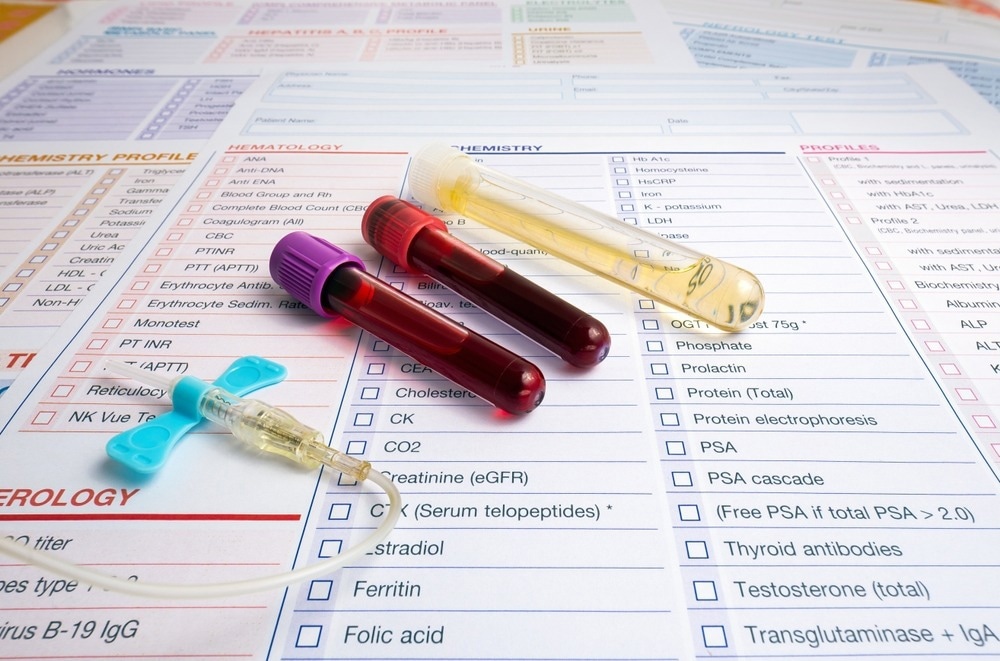Up to 69% of patients who have recovered from the coronavirus disease 2019 (COVID-19) will subsequently be diagnosed with post-acute sequelae of COVID-19 (PASC). PASC symptoms, which can be detected four or more weeks following the initial severe acute respiratory syndrome coronavirus 2 (SARS-CoV-2) infection diagnosis, can include memory loss, gastrointestinal (GI) distress, fatigue, ansomnia, and shortness of breath.
The wide range of potential symptoms that can be caused by PASC, as well as the various factors that may contribute to its occurrence, highlight the urgent need to better understand the pathophysiology of this condition.

Study: Multiple early factors anticipate post-acute COVID-19 sequelae. Image Credit: angellodeco / Shutterstock.com
About the study
Researchers in a recent Cell study perform a longitudinal multi-omic study on COVID-19 patients from their initial diagnosis to early recovery. Taken together, this data allowed the researchers to identify, quantify, and characterize the different immunological factors that appear to contribute to the development of PASC.
A total of 209 patients who presented with acute COVID-19 comprised the INCOV cohort and were paired with 457 healthy controls. Blood was collected at three time points, including T1, T2, and T3, which represented their time of clinical diagnosis, acute disease, and convalescence, respectively. Convalescence samples were collected between two and three months after the initial infection symptoms had been detected.
Each blood sample was assessed for the presence of autoantibodies (autoAbs) and SARS-CoV-2-specific antibodies and their proteomic and metabolomic profiles. Furthermore, peripheral blood mononuclear cells (PBMCs) were isolated from the blood samples and subjected to single-cell multi-omic characterization.
Study findings
At T3, most study participants exhibited anti-SARS-CoV-2 spike protein receptor binding (RBD) antibodies, with their levels correlating with the severity of their symptoms. Some of the most prevalent symptoms reported by study participants at T3 included fatigue, cough, and anosmia/dysgeusia, which were reported among 52%, 25%, and 18% of participants, respectively.
Patients with a history of type 2 diabetes, chronic obstructive pulmonary disease (COPD), and higher red blood cell (RBC) counts at T1, as well as those of the female gender, were more likely to present with more than three PASC symptoms.
Several biomarkers were found to correlate with different PASC symptoms at T3. For example, patients who had previously received steroid treatment during the acute disease exhibited lower cortisol levels at T1 and T2 but not T3.
Patients who experienced neurological symptoms were more likely to exhibit high levels of proteins that negatively regulate the circadian rhythm. A significant proportion of patients at T3 who experienced more than three symptoms exhibited both reduced cortisol levels and increased levels of these circadian rhythm proteins.
Previous studies have demonstrated that the development of PASC may be associated with the reactivation of Epstein-Barr virus (EBV). In the current study, 14% of patients exhibited EBV viremia at T1 and were more likely to experience fatigue and sputum symptoms associated with their PASC.
About 25% of PASC patients were positive for SARS-CoV-2 RNAemia at T1. Notably, the presence of SARS-CoV-2 RNAemia at this time point was associated with a greater likelihood of mortality.
Several autoAbs and anti-SARS-CoV-2 Abs detected at T3 correlated with different PASC symptoms. Patients with higher levels of anti-SARS-CoV-2 nucleocapsid protein immunoglobulin G (IgG), for example, were more likely to experience neurological symptoms associated with PASC, whereas increased levels of various autoAbs at T3 and T1 were associated with GI-related PASC symptoms and sputum production.
Patients experiencing GI symptoms as a result of their PASC were also more likely to exhibit CD8+ and CD4+ T-cells. More specifically, these patients exhibited undifferentiated T-cells during the acute disease and increased cytotoxic characteristics at T3. Comparatively, patients with respiratory PASC symptoms exhibited opposite T-cell patterns.
Conclusions
The current study offered novel insights into the different biological factors that might contribute to PASC. These observations may allow clinicians to identify patients at an increased risk of developing PASC before their symptoms develop, thus leading to better patient outcomes.